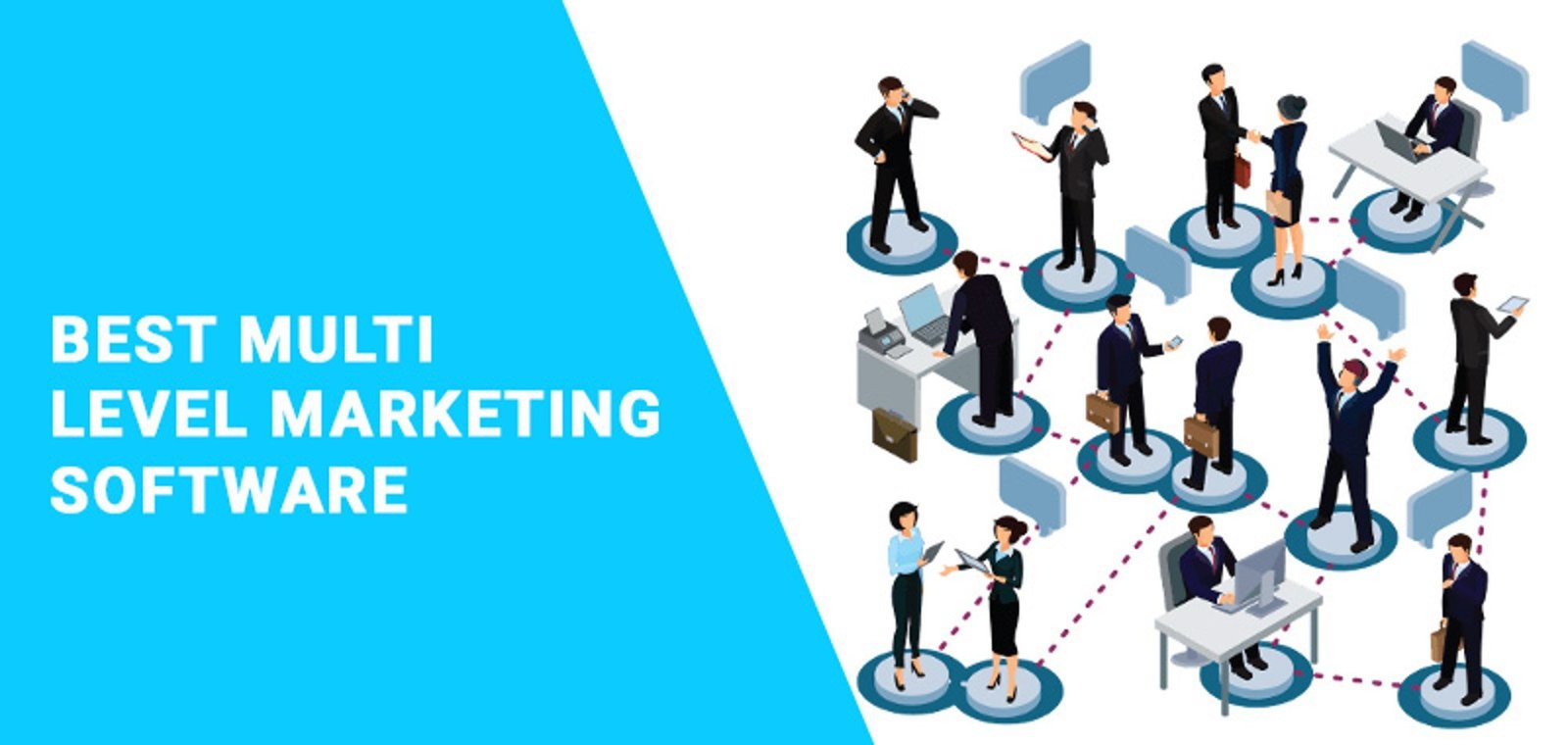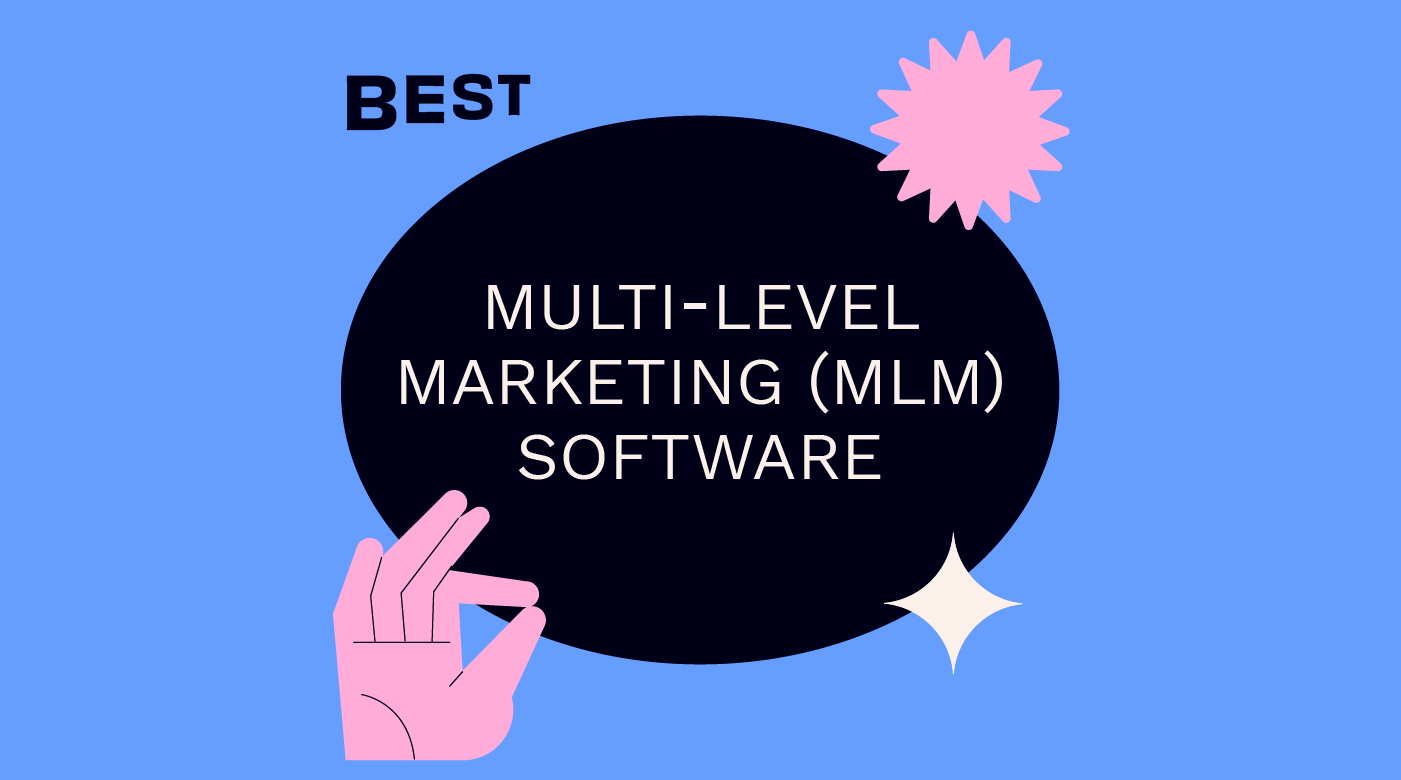In the ever-evolving landscape of network marketing, multi level marketing software has emerged as a powerful tool to streamline operations, boost productivity, and drive success. This comprehensive guide will delve into the world of MLM software, providing valuable insights, tips, and strategies to help network marketers leverage this technology to its full potential.
Understanding Multi Level Marketing Software and Its Benefits
Multi Level Marketing software is a powerful tool that can help businesses automate and manage their MLM operations. It can help businesses track sales, commissions, and genealogy, as well as manage customer relationships and generate reports.
Benefits of Using Multi Level Marketing Software:
- Increased Efficiency: MLM software can help businesses automate many of their tasks, such as tracking sales, commissions, and genealogy. This can free up time for businesses to focus on other important tasks, such as growing their business and developing new products.
- Improved Accuracy: MLM software can help businesses track sales and commissions more accurately. This can help businesses avoid errors and ensure that their distributors are paid correctly.
- Enhanced Customer Relationships: Multi Level Marketing Software can help businesses manage their customer relationships more effectively. It can help businesses track customer orders, preferences, and communication history. This information can be used to personalize marketing campaigns and improve customer service.
- Generate Reports: Multi Level Marketing Software can generate a variety of reports, such as sales reports, commission reports, and genealogy reports. These reports can be used to track the performance of the business and make informed decisions about how to improve it.
Optimizing Your Multi Level Marketing Plan for Impact 2024
Choosing the Right Multi Level Marketing Software for Your Business

In the realm of Multi Level Marketing (MLM), having the right software can make a significant difference in the success of your business. With numerous options available in the market, selecting the most suitable Multi Level Marketing Software requires careful consideration. Here are some essential factors to keep in mind when choosing the right software for your MLM business:
1. Identify Your Specific Needs
Before diving into the plethora of Multi Level Marketing Software options, it’s crucial to clearly define your business requirements. Consider aspects such as the size of your network, the complexity of your compensation plan, inventory management needs, and desired features for communication and reporting.
Understanding your specific needs will help narrow down your options and ensure that the chosen software aligns with your business goals.
2. Evaluate Features and Functionality
Different Multi Level Marketing Software solutions offer varying features and functionalities. Evaluate each option based on its capabilities in managing distributor networks, processing orders, tracking commissions, generating reports, and facilitating communication.
Look for features that streamline your business processes and enhance efficiency, ultimately contributing to the growth and success of your MLM business.
3. Consider Customization and Scalability
A crucial aspect of choosing Multi Level Marketing Software is ensuring that it can be customized to meet the unique requirements of your business. Opt for a solution that allows for flexibility and scalability, enabling you to adapt to evolving business needs and future growth. Whether it’s customizing compensation plans, integrating with third-party tools, or accommodating changes in product lines, the software should offer flexibility to support your business expansion.
4. Assess User Experience and Support
User experience plays a significant role in the adoption and utilization of Multi Level Marketing Software by distributors and administrators alike. Prioritize software solutions that are intuitive, user-friendly, and offer comprehensive training and support resources.
Additionally, consider the level of customer support provided by the software vendor, including availability, responsiveness, and expertise in addressing technical issues and resolving challenges.
5. Ensure Compliance and Security
Compliance with legal regulations and data security standards is paramount in the MLM industry. Choose Multi Level Marketing Software that adheres to relevant compliance requirements and implements robust security measures to protect sensitive data and transactions.
Look for features such as encryption, role-based access control, audit trails, and GDPR compliance to safeguard your business and instill trust among distributors and customers.
6. Evaluate Cost and Return on Investment
While cost is undoubtedly a significant consideration, it’s essential to evaluate Multi Level Marketing Software investments in terms of their potential return on investment (ROI). Compare pricing models, including upfront costs, subscription fees, and any additional charges for customization or support services.
Assess the value proposition of each software solution based on its features, functionality, scalability, and potential impact on your business revenue and profitability.
Multi Level Marketing Law: Navigating the Legal Landscape
Implementing Multi Level Marketing Software: Best Practices and Tips

Once you have chosen the right Multi Level Marketing software for your business, it is important to implement it correctly. Here are some best practices and tips for implementing MLM software:
- Get buy-in from your team: Before you implement MLM software, it is important to get buy-in from your team. Explain the benefits of the software and how it will help them be more successful.
- Set up the software correctly: Make sure you set up the software correctly according to your business needs. This includes setting up the compensation plan, products, and distributors.
- Train your team: Once the software is set up, you need to train your team on how to use it. This includes training on how to enter sales, track commissions, and manage their downline.
- Monitor the software: Once the software is implemented, you need to monitor it to make sure it is working properly. This includes monitoring for errors and ensuring that your distributors are using the software correctly.
- Update the software regularly: MLM software is constantly being updated with new features and improvements. It is important to update your software regularly to ensure that you are using the latest version.
Here are some additional tips for implementing MLM software:
- Start with a pilot group: Before you roll out the software to your entire team, start with a pilot group of distributors. This will allow you to test the software and get feedback before you implement it more widely.
- Use the software yourself: The best way to learn how to use MLM software is to use it yourself. This will help you understand the software and how it can benefit your business.
- Get support from your software provider: Most MLM software providers offer support to their customers. This support can help you with troubleshooting, training, and other issues.
By following these best practices and tips, you can successfully implement MLM software in your business and start reaping the benefits of automation.
Maximizing Multi Level Marketing Software for Success: Strategies and Case Studies

In the dynamic world of Multi Level Marketing (MLM), the effective utilization of Multi Level Marketing Software is essential for achieving success and driving sustainable growth. Leveraging this specialized software to its fullest potential requires strategic planning, implementation, and continuous optimization. Here, we delve into strategies and real-life case studies to illustrate how businesses can maximize the benefits of Multi Level Marketing Software for unparalleled success.
1. Align Software with Business Objectives
Successful MLM businesses understand the importance of aligning Multi Level Marketing Software with their overarching business objectives. By clearly defining goals such as increasing sales, expanding the distributor network, or launching new product lines, companies can tailor the functionalities of the software to support these objectives.
For instance, if the goal is to enhance distributor recruitment, the software can be optimized for seamless onboarding processes and robust communication tools to attract and retain top talent.
2. Implement Effective Training and Support Systems
Investing in comprehensive training and support systems is paramount to ensure that distributors and administrators maximize the potential of Multi Level Marketing Software. Providing in-depth training sessions, tutorials, and ongoing support resources equips users with the knowledge and skills needed to navigate the software effectively.
Additionally, establishing a dedicated support team or help desk ensures prompt assistance and troubleshooting, empowering users to overcome challenges and leverage the software for optimal results.
3. Utilize Data-Driven Insights for Decision Making
Data analytics capabilities inherent in Multi Level Marketing Software offer valuable insights into various aspects of the MLM business. By analyzing sales trends, distributor performance, customer behavior, and market dynamics, companies can make informed decisions to drive growth and profitability.
For example, leveraging predictive analytics can help identify emerging market opportunities or anticipate changes in consumer preferences, enabling proactive strategies to stay ahead of the competition.
Case Study: XYZ Company
XYZ Company, a leading MLM business in the health and wellness industry, implemented a robust Multi Level Marketing Software solution to streamline its operations and enhance distributor productivity. By aligning the software with its goal of expanding into international markets, XYZ Company utilized the platform’s localization features to support multiple languages and currencies, facilitating seamless global expansion.
Additionally, leveraging the software’s advanced reporting and analytics capabilities, XYZ Company identified lucrative market segments and tailored marketing strategies to effectively target and engage potential customers, resulting in a significant increase in sales and distributor recruitment.
Case Study: ABC Corporation
ABC Corporation, a startup MLM business specializing in skincare products, recognized the importance of effective training and support in maximizing the potential of Multi Level Marketing Software.
By investing in comprehensive training programs and establishing a dedicated support team, ABC Corporation ensured that its distributors were equipped with the necessary skills and resources to leverage the software effectively. As a result, distributors reported higher satisfaction levels, increased productivity, and improved retention rates, contributing to the overall success and growth of the business.



